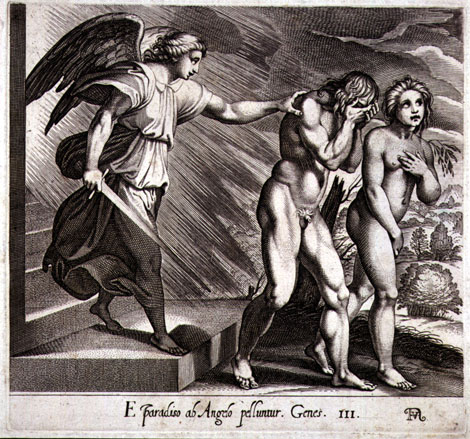Pride and Prejudice published in 1830 had originally been titled “First Impressions”. The original title seems apt enough as the whole novel deals with the unreliability of first impressions. The new title however, focuses attention on the main theme of the novel which traces how ‘pride’ and ‘prejudice’ as two human traits guide relationships and this is brought out with respect to the relationship between two central figures of the novel – Mr. Darcy and Elizabeth Bennet. It is believed that these two characters are studies in pride and prejudice respectively. On a superficial level this view holds true but it would certainly be over-simplifying matters to say that this alone brings out the full significance of the title.
Pride certainly is the pre-dominant characteristic of Mr. Darcy. On his very first appearance he makes himself highly unpopular, for he is discovered to be excruciatingly arrogant and above being pleased. His pride that stems of out of his superiority of intellect, his noble ancestry and enormous wealth prejudices him strongly against Elizabeth’s family and her low connections. Darcy’s is actually a social prejudice – a variant of the conventional snobbery of the aristocratic class. Although “he had never been bewitched by any woman as he was by her”, Darcy feels it beneath his dignity to admit to his love for her. Even when he can repress his feelings no longer and does propose to Elizabeth ‘he was not more eloquent on the subject of tenderness than on pride.” In fact his customary arrogance deepens into what amounts to insolence during the proposal in which he explains to her the various family obstacles he has had to over-come and the degradation this marriage will be for him. He is considerably humbled when he is rejected without ceremony and Elizabeth’s words “had you behaved in a more gentlemanlike manner” and her criticism of his conceit and ‘selfish disdain of the feelings of others’ affect him deeply. Elizabeth’s refusal initiates a process of introspection and self criticism and he emerges as a man whose pride has been humbled. This is revealed in the way he welcomes the Gardiners at his estate and also by his long explanatory speech to Elizabeth towards the end of the novel. The greatest proof of this development is in his remaining firm in his choice of Elizabeth even after Lydia’s and Wickham’s dishonorable elopement which draws from Elizabeth the acknowledgement – “indeed he has no improper pride. He is perfectly amiable.”
In Elizabeth, the intelligent and self-assured young woman too we see the same interesting compound of Pride and Prejudice. Her initial prejudice against Darcy arises from injured pride. At the assembly she over-hears Darcy’s remark about herself: “she is tolerable but not handsome enough to tempt me”. From that evening Eliza is left with no cordial feelings towards Darcy. On the other hand Elizabeth is prejudiced in favor of Wickham, charmed by his fine countenance, pleasing addresses and his flattering attentions and when he provides slanderous information against Darcy, the possibility of doubting Wickham does not occur to Elizabeth and her prejudice against Darcy takes the shape of moral indignation. It is only when she reads Darcy’s letter that her eyes are opened to the true character of both. In fact, Darcy’s letter induces in Elizabeth the same self-criticism that Darcy too undergoes. She begins reading it “with a strong prejudice against everything” that he might have to say” but on reflection she realizes how blind, partial, prejudiced and absurd she had been. She was flattered and pleased by his attentions to her and her uncle and aunt at Pemberley and when she learns Darcy’s role in buying Lydia a marriage to Wickham she greaves over every ‘ungracious sensation that she has ever encouraged’ towards him. For herself ‘she was humbled, but she was proud of him’.
The traits of Pride and Prejudice do not dominate merely the main figures and the significance of this title is worked out perfectly through the minor characters as well. Pride in some of the minor characters takes the form of pompous and comic self-importance in Mr. Collins. Social prejudice finds embodiment in Bingley’s sisters, Lady Catherine and her daughter and renders them quite contemptible. Thus we see that the appropriateness of the title of Pride and Prejudice is indeed unquestionable and it bears immense significance to the plot, thematic concerns and the characterization in the novel.
Some online learning platforms provide certifications, while others are designed to simply grow your skills in your personal and professional life. Including Masterclass and Coursera, here are our recommendations for the best online learning platforms you can sign up for today.
The 7 Best Online Learning Platforms of 2022
- Best Overall: Coursera
- Best for Niche Topics: Udemy
- Best for Creative Fields: Skillshare
- Best for Celebrity Lessons: MasterClass
- Best for STEM: EdX
- Best for Career Building: Udacity
- Best for Data Learning: Pluralsight

















You, without question, nicely delineated both the protagonists here. It truly fills my heart with immense pleasure to understand the characters better. Thank you. I look forward to reading more on many subjects laid down more beautifully by you.